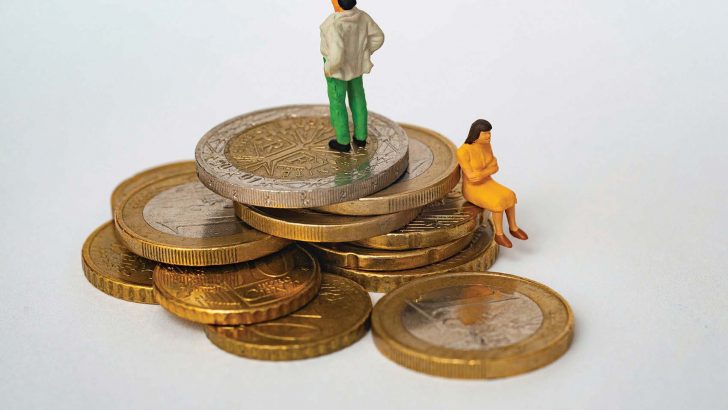The pandemic and ensuing restrictions continue to cast a long shadow on Dublin diocese finances, but a big sale proves lucrative, writes Jason Osborne
The archdiocese of Dublin’s 2020 financial report details a continued fall in the diocese’s finances over the last year, a trend accelerated by the Covid-19 pandemic and the restrictions put in place to slow its spread.
The Archdiocese of Dublin files two financial reports annually with the Charities Regulatory Authority (CRA), with both reporting drastic decreases in income over the past year.
The ‘Parishes of the Diocese of Dublin’ report, covering the financial statements of the combined parishes, the clerical fund, the common fund and the share fund reported a deficit of €4.3 million for 2020, whereas 2019 saw a surplus of €7.7 million.
The results for the 189 parishes of the diocese are combined in the report, but the “net movement in the funds” for the parishes worked out at €1.5 million in 2020, compared to €6.3 million in 2019.
Total income for the Dublin parishes for the year ending December 31, 2020, was €27.4 million, a drop of near €4 million on 2019. Income from charitable activities, such as family offering, donations and shrine income was down, as was income sourced from legacies.
However, the parishes expenditure was also down, amounting to €29.3 million, compared to 2018’s €32.6 million, a figure which shows how much was spent on operating and maintenance costs of the combined parishes over the past year.
The clerical fund, which mainly supports elderly priests and priests suffering from illness, saw a deficit for the year of €508,000. 2019, on the other hand, the net movement in funds was a surplus of €1.5 million. The contribution received from the common fund to the clerical fund was down in 2020 as a result of the “sharp decline” in the first collection at Mass, which the report attributes directly to the Covid-19 pandemic.
The common fund, meanwhile, experienced another deficit – €1.7 million compared to 2019’s €1.3 million, but this was after benefitting from a donation of €1 million from the archbishop’s general fund during the year. The common fund, through the first collection at Mass, supported the income of 420 priests in Dublin archdiocese during 2020.
In decline
The share fund, which has been “in decline” since 2009, primarily derives its income from the second collection every weekend, and is used to finance “central support services for parishes and to provide financial assistance to low income parishes”. This fund also experienced a deficit in 2020, of €3.6 million, which stands in contrast to 2019’s surplus of €1.1 million.
As a result of the fall in the share collection, “it was necessary to reduce the long-term fixed costs of the diocesan offices as there is currently little optimism that the collections will go back to the pre-pandemic amounts for some time”. A voluntary redundancy programme was introduced, which 40 staff availed of by the end of 2020.
The parish pastoral services fund supports lay ministry, and a new collection was introduced for this in 2019, securing proceeds of €137,000 towards lay ministry. However, this collection wasn’t held in 2020 due to the closure of churches for public worship, in connection to the pandemic.
The archdiocese’s building fund was also in deficit of €996,000, compared to 2019’s €225,000.
The report’s review of the period identifies the church closures of 2020 as having had a severe impact on these diocesan funds.
“Collection income for the charity reduced by almost 80% in a three-month period,” the report reads, continuing, “Numbers attending Masses were restricted to 50 people when churches reopened for worship on 29 June. Churches in Dublin were subsequently closed again in September 2020 and churches in the rest of the Diocese were closed in October 2020 and did not reopen until 10 May 2021”.
Restructuring
This situation forced the diocese to consider a range of restructuring measures to mitigate the long-term impact of the pandemic, “which came after years of steady decline in financial support for the charity”.
This saw the eligible parishes apply for the economy-wide state support, while over 170 parishes implemented online donation facilities on their parish websites as well as on main diocesan website.
As a result of the dip in diocesan finances over the years, and particularly last year, the income review group was established in 2020 as a sub-group of the Dublin Diocesan Finance Committee, the role of this group being to make recommendations regarding how the more “significant income streams” of the diocese can be best increased and organised into the future.
One source of positivity and optimism in the financial records was the receipt of nearly €3 million last year from the GAA as the result of a deal the association struck with the US property group Hines in 2019. The archdiocese sold a plot to the GAA for €95 million, which included the 19-acre site at Clonliffe.
The GAA is reported to have received €105 million for the lands it sold to Hines. However, the archdiocese’s financial report for 2020 says that it received €2,918,000 as the result of a clause in its contract with the GAA, which says that it would receive a share in the GAA’s profits if it sold on any of the lands or buildings to a third party.
The GAA sold on a large portion of the lands they purchased from the archdiocese, which resulted in the archdiocese receiving a share of the profits made by the GAA.
The financial report revealed the second tranche in the archdiocese’s deal with the GAA closed last year, which saw 6.51 acres at Clonliffe transferred to the GAA, for which the archdiocese received €31,248,000.
The archdiocese has retained ownership of the archbishop’s house at Clonliffe, as well as the former Mater Dei college building, which is leased to Dublin City Council and used as a centre for 50 homeless families, which is managed by Crosscare, one of the archdiocese’s agencies.



